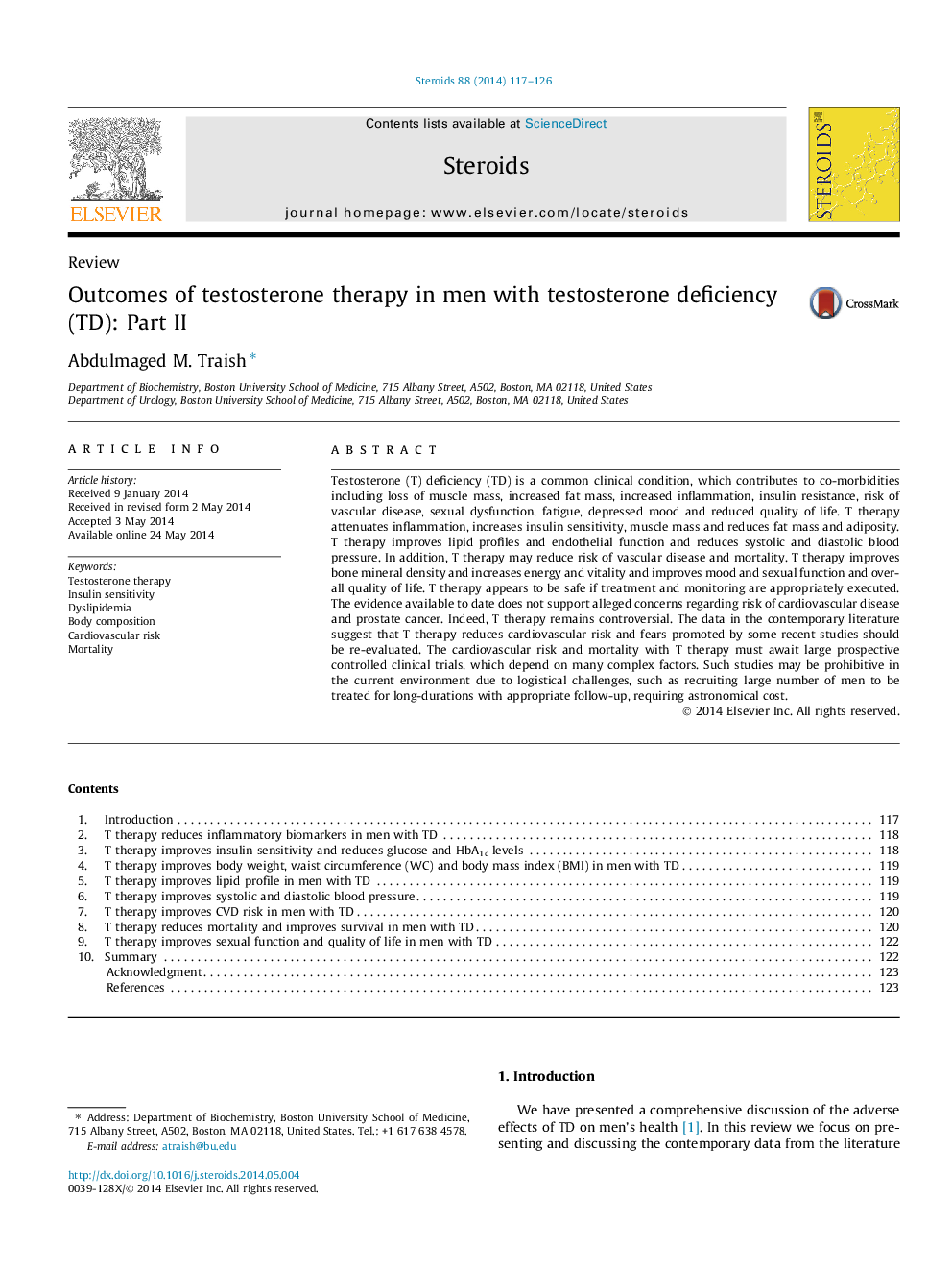| Article ID | Journal | Published Year | Pages | File Type |
|---|---|---|---|---|
| 2027894 | Steroids | 2014 | 10 Pages |
•T therapy ameliorates MetS components, attenuates inflammatory cytokines, improves insulin sensitivity and lipid profiles.•T therapy increases lean body mass and reduces fat mass and produces significant WL, reduction in WC and BMI.•Testosterone therapy appears to be safe and effective, but requires appropriate monitoring.•T therapy in men with TD may prove useful in treating symptoms of androgen deficiency and improving quality of life.
Testosterone (T) deficiency (TD) is a common clinical condition, which contributes to co-morbidities including loss of muscle mass, increased fat mass, increased inflammation, insulin resistance, risk of vascular disease, sexual dysfunction, fatigue, depressed mood and reduced quality of life. T therapy attenuates inflammation, increases insulin sensitivity, muscle mass and reduces fat mass and adiposity. T therapy improves lipid profiles and endothelial function and reduces systolic and diastolic blood pressure. In addition, T therapy may reduce risk of vascular disease and mortality. T therapy improves bone mineral density and increases energy and vitality and improves mood and sexual function and overall quality of life. T therapy appears to be safe if treatment and monitoring are appropriately executed. The evidence available to date does not support alleged concerns regarding risk of cardiovascular disease and prostate cancer. Indeed, T therapy remains controversial. The data in the contemporary literature suggest that T therapy reduces cardiovascular risk and fears promoted by some recent studies should be re-evaluated. The cardiovascular risk and mortality with T therapy must await large prospective controlled clinical trials, which depend on many complex factors. Such studies may be prohibitive in the current environment due to logistical challenges, such as recruiting large number of men to be treated for long-durations with appropriate follow-up, requiring astronomical cost.
